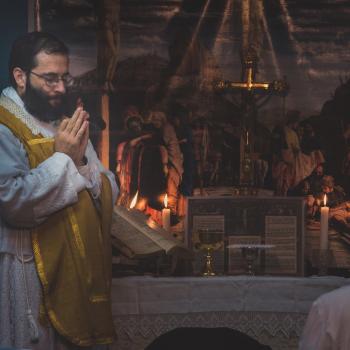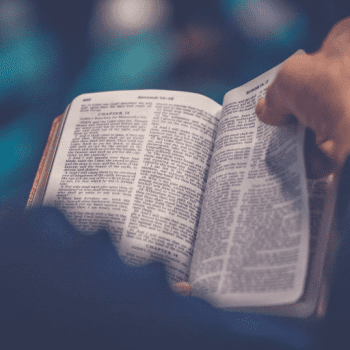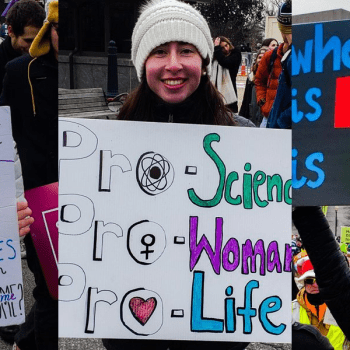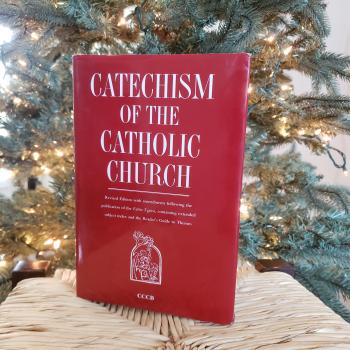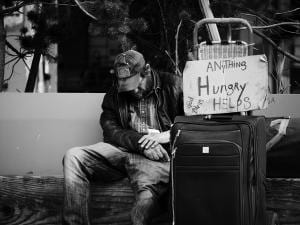
I am surprised how adamantly some Catholics deny that life’s necessities are human rights. However, the overwhelming evidence from the Magisterium is that things like food, water, clothing, and shelter are basic human rights. We cannot deny these from anyone. We cannot leave the poor without these things. I want to go over a few magisterial teachings then give some explanation.
Magisterium on Food, Shelter, and Clothing as Human Rights
The Church through her leaders has repeatedly explained that these three basic necessities are human rights. I will quote several sources then explain.
St. Basil the Great gives us a perspective from patristic times.
When someone steals another’s clothes, we call them a thief. Should we not give the same name to one who could clothe the naked and does not? The bread in your cupboard belongs to the hungry; the coat unused in your closet belongs to the one who needs it; the shoes rotting in your closet belong to the one who has no shoes; the money which you hoard up belongs to the poor.
Someone is not a thief because they lack charity, as charity is giving more than is needed. Someone is called a thief when they lack justice which is given to each what is justly his or hers. Thus, by calling the one who hoards a thief, St. Basil is stating that these things belong to the poor by right, not just by charity. He re-emphasizes this through his wording later on, when he says these things belong to the poor.
John Paul II (World Day of Peace 2003):
There is still in fact much hesitation in the international community about the obligation to respect and implement human rights. This duty touches all fundamental rights, excluding that arbitrary picking and choosing which can lead to rationalizing forms of discrimination and injustice. Likewise, we are witnessing the emergence of an alarming gap between a series of new “rights” being promoted in advanced societies – the result of new prosperity and new technologies – and other more basic human rights still not being met, especially in situations of underdevelopment. I am thinking here for example about the right to food and drinkable water, to housing and security, to self-determination and independence – which are still far from being guaranteed and realized. Peace demands that this tension be speedily reduced and in time eliminated.
John Paul II deals with one of the objections often raised to calling basic necessities human rights: that we can make everything a right. He explicitly criticizes some of these new rights being created while noting that food, water, housing and security are rights.
Compendium of Social Doctrine (166):
These demands [of the common good] concern above all the commitment to peace, the organization of the State’s powers, a sound juridical system, the protection of the environment, and the provision of essential services to all, some of which are at the same time human rights: food, housing, work, education and access to culture, transportation, basic health care, the freedom of communication and expression, and the protection of religious freedom.
Like several things above, this assumes that these things are basic rights. It is fundamental to have them. It is so fundamental that in my search, many magisterial sources just assumed they were right as a kind of prior principle.
The Catechism (2408):
The seventh commandment forbids theft, that is, usurping another’s property against the reasonable will of the owner. There is no theft if consent can be presumed or if refusal is contrary to reason and the universal destination of goods. This is the case in obvious and urgent necessity when the only way to provide for immediate, essential needs (food, shelter, clothing . . .) is to put at one’s disposal and use the property of others.
This reminds us that taking some of the excess from the rich to help the poor avoid starving, freezing, etc. is not theft. It is far better for society to organize some system through the government of formal charities to do this, than leave the poor debating when they are starving enough.
Leo XIII (Rerum Novarum 22)
No one is commanded to distribute to others that which is required for his own needs and those of his household; nor even to give away what is reasonably required to keep up becomingly his condition in life, “for no one ought to live other than becomingly.” But, when what necessity demands has been supplied, and one’s standing fairly taken thought for, it becomes a duty to give to the indigent out of what remains over. “Of that which remaineth, give alms.” It is a duty, not of justice (save in extreme cases), but of Christian charity – a duty not enforced by human law.
The Pope notes that it is a duty of charity to share with the poor in general and a duty of justice if the poor are starving (or lacking shelter or clothing to the degree health is in danger).
Discussion of these Basic Rights
Even if you don’t like quoting Church documents, the right to life as listed first in the US declaration of independence implies these rights. We need food, clothing and shelter to survive.
As an example of how basic these rights are, to deny these things to those captured in war is a war crime, and to deny them to your child is abuse. This demonstrates how these are not things that can be justly taken away. It is not that people have a right to whatever they want. It is not abuse if mom tells her child that they need to eat the chicken and potatoes served for dinner and they can’t eat ice cream, and there is no issue with a prison saying “This gruel is what’s for lunch, take it or leave it.”
This is also not necessarily done through the government. If society decided to do this through some formal charity or extended family and neighbors, that would be just. The Church does not state how we need to prevent everyone in society from starving, just that we need to make sure everyone can get food. However, most modern developed countries rely heavily on the government for this. If we want to switch from the government, we need to make sure everyone has another way to get food before government systems are removed. As a person starving is a problem of the whole of society, not just that John Smith didn’t give him a sandwich, society as a whole needs to decide what means will be used to help people like this. Individual charity can and should supplement the normal means and could become the normal means if far more people decided to do it.
Obviously, the right to food is contingent on a society with surplus of food or money to buy food. If you harvest just enough potatoes to feed your family, it would be unjust to take some to feed others. Right now, there is obvious excess in many in this society.
Hopefully, this explanation of Catholic Social Doctrine helps whenever government programs to help the poor come up in the news. We together have a duty to make sure that the poor don’t starve or have serious health effects from lacking shelter or clothing. There are various ways to fulfill that duty, but right now, we as a society have decided to put a good portion of that duty on government programs paid for by taxes.
If you want to see what discussion lead to this post, I invite you to read a few of my recent tweets (or a Facebook post) with their replies.
Note: please support me via Patreon. Thanks!



